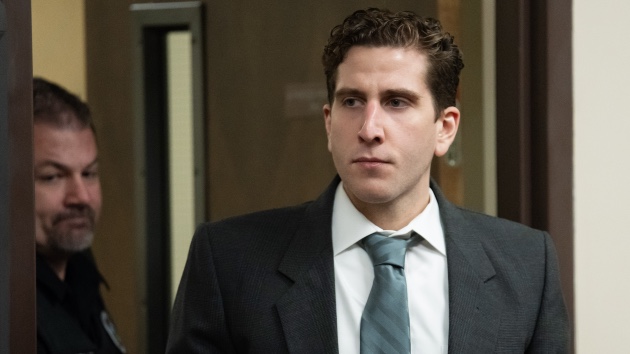
(MOSCOW, Idaho) — In a series of final rulings ahead of Bryan Kohberger’s capital murder trial, Judge Steven Hippler said lawyers for the man who could be executed, if convicted, won’t be permitted to present to the jury the theory that some unknown person is the real killer.
The trial in the Idaho college killings case will begin Aug. 18, a week later than originally planned, a judge ruled Thursday.
With jury selection starting on Aug. 4, a series of final rulings has cleared the path for the trial of Bryan Kohberger as Judge Steven Hippler said lawyers for the man who could be executed, if convicted, won’t be permitted to present to the jury the theory that some unknown person is the real killer.
However, Kohberger’s defense will be allowed to press investigators on whether they followed up on all plausible leads enough, beyond simply pursuing Kohberger, the judge said.
“Nothing links these individuals to the homicides or otherwise gives rise to a reasonable inference that they committed the crime; indeed, it would take nothing short of rank speculation by the jury to make such a finding,” the judge said.
Kohberger’s lawyers had offered the judge, under seal, what they said were four other people who might have killed Kaylee Goncalves, Madison Mogen, Xana Kernodle and Ethan Chapin in an off-campus house on Nov. 13, 2022.
Kohberger’s attorneys — who insist he is innocent — did acknowledge that they didn’t have enough to pursue that strategy at the trial’s outset and wanted the judge to give them “latitude” in building that theory when they cross-examine the prosecution’s witnesses.
The judge rejected the proof they offered as paper-thin at best, and “entirely irrelevant.”
“At best, [Kohberger’s] offer of proof can give rise to only wild speculation that it is possible any one of these four individuals could have committed the crimes,” Judge Steven Hippler said, adding the defense can’t “merely offer up unsupported speculation that another person may have committed the crime, which is all [Kohberger] has done here.”
In his ruling, Hippler said allowing the defense to indulge that theory would risk leading the jury “astray” and waste their “precious time,” the judge said.
Kohberger’s defense previously suggested there could be someone else behind the killings, pointing to the other unidentified male DNA samples found in the crime scene area. But, the judge noted, each of the four people proffered as alternates had cooperated with authorities, provided their DNA and fingerprints and that forensics had already excluded their DNA from the samples taken from the crime scene and victims.
The fourth individual offered as an alternate had a “passing connection” to one of the victims, the judge said: he “noticed her shopping at a store approximately five weeks prior to the homicides.”
“He followed her briefly out the exit of the store while considering approaching her to talk. He turned away before ever speaking to her,” the judge said.
Hippler added that the event was “captured on a surveillance camera,” and that this man had cooperated with authorities. His DNA had already been excluded from those taken from the crime scene.
In another new filing just posted to the docket, Judge Hippler also denied the defense’s attempt to further delay the trial.
Kohberger “has not made a showing that there is good cause to continue the trial,” Hippler said.
Kohberger’s lawyers had pushed for another delay, citing a massive trove of records turned over by the prosecution in such a high-stakes case, the “inflammatory” media coverage potentially biasing the jury, and because they needed more time to prepare their case for sentencing, should he be convicted.
The judge itemized the extensive investigation that Kohberger’s lawyers had already done to prepare for a possible sentencing phase that show an “expansive understanding” of who the man is and the world he’s been living in.
The list includes his educational, medical and mental health records; his father’s military records; “multiple” interviews with Kohberger himself as well as family members, two of his fourth-grade teachers, his former boxing coach, and a psychologist who evaluated Kohberger in 2005; interviews with his former Masters’ degree professor/advisor; and letters and jail calls between Kohberger and his family.
There is also a lengthy redacted section discussing “speculation” Kohberger’s lawyers want to “chase down,” which the judge calls “unsupported suspicions” that “smacks of tactical gamesmanship and delay.”
If they were “truly struggling” to be ready for an August trial, they should have said so sooner, before all the deadlines had passed, the judge said. Kohberger’s lawyers have “robustly litigated” this case so far, amassed dozens of experts and other team members and filed numerous briefs.
The judge also said he doubted the national media attention on the case would decrease with a delay.
“Four college students in a small Idaho college town were brutally stabbed to death by an unknown perpetrator,” the judge said. “It was an immediate media sensation and garnered widespread attention that not only continues to persist, but continues to grow.”
Copyright © 2025, ABC Audio. All rights reserved.




